- Home
- H. P. Lovecraft
The Road to Madness Page 14
The Road to Madness Read online
Page 14
As I fled from that accursed castle along the bog’s edge I heard a new sound: common, yet unlike any I had heard before at Kilderry. The stagnant waters, lately quite devoid of animal life, now teemed with a horde of slimy enormous frogs which piped shrilly and incessantly in tones strangely out of keeping with their size. They glistened bloated and green in the moonbeams, and seemed to gaze up at the fount of light. I followed the gaze of one very fat and ugly frog, and saw the second of the things which drove my senses away.
Stretching directly from the strange olden ruin on the far islet to the waning moon, my eyes seemed to trace a beam of faint quivering radiance having no reflection in the waters of the bog. And upward along that pallid path my fevered fancy pictured a thin shadow slowly writhing; a vague contorted shadow struggling as if drawn by unseen demons. Crazed as I was, I saw in that awful shadow a monstrous resemblance—a nauseous, unbelievable caricature—a blasphemous effigy of him who had been Denys Barry.
Herbert West—Reanimator
I. FROM THE DARK
Of Herbert West, who was my friend in college and in after life, I can speak only with extreme terror. This terror is not due altogether to the sinister manner of his recent disappearance, but was engendered by the whole nature of his life-work, and first gained its acute form more than seventeen years ago, when we were in the third year of our course at the Miskatonic University Medical School in Arkham. While he was with me, the wonder and diabolism of his experiments fascinated me utterly, and I was his closest companion. Now that he is gone and the spell is broken, the actual fear is greater. Memories and possibilities are ever more hideous than realities.
The first horrible incident of our acquaintance was the greatest shock I ever experienced, and it is only with reluctance that I repeat it. As I have said, it happened when we were in the medical school, where West had already made himself notorious through his wild theories on the nature of death and the possibility of overcoming it artificially. His views, which were widely ridiculed by the faculty and by his fellow-students, hinged on the essentially mechanistic nature of life; and concerned means for operating the organic machinery of mankind by calculated chemical action after the failure of natural processes. In his experiments with various animating solutions, he had killed and treated immense numbers of rabbits, guinea-pigs, cats, dogs, and monkeys, till he had become the prime nuisance of the college. Several times he had actually obtained signs of life in animals supposedly dead; in many cases violent signs; but he soon saw that the perfection of his process, if indeed possible, would necessarily involve a lifetime of research. It likewise became clear that, since the same solution never worked alike on different organic species, he would require human subjects for further and more specialised progress. It was here that he first came into conflict with the college authorities, and was debarred from future experiments by no less a dignitary than the dean of the medical school himself—the learned and benevolent Dr. Allan Halsey, whose work in behalf of the stricken is recalled by every old resident of Arkham.
I had always been exceptionally tolerant of West’s pursuits, and we frequently discussed his theories, whose ramifications and corollaries were almost infinite. Holding with Haeckel that all life is a chemical and physical process, and that the so-called “soul” is a myth, my friend believed that artificial reanimation of the dead can depend only on the condition of the tissues; and that unless actual decomposition has set in, a corpse fully equipped with organs may with suitable measures be set going again in the peculiar fashion known as life. That the psychic or intellectual life might be impaired by the slight deterioration of sensitive brain-cells which even a short period of death would be apt to cause, West fully realised. It had at first been his hope to find a reagent which would restore vitality before the actual advent of death, and only repeated failures on animals had shewn him that the natural and artificial life-motions were incompatible. He then sought extreme freshness in his specimens, injecting his solutions into the blood immediately after the extinction of life. It was this circumstance which made the professors so carelessly sceptical, for they felt that true death had not occurred in any case. They did not stop to view the matter closely and reasoningly.
It was not long after the faculty had interdicted his work that West confided to me his resolution to get fresh human bodies in some manner, and continue in secret the experiments he could no longer perform openly. To hear him discussing ways and means was rather ghastly, for at the college we had never procured anatomical specimens ourselves. Whenever the morgue proved inadequate, two local negroes attended to this matter, and they were seldom questioned. West was then a small, slender, spectacled youth with delicate features, yellow hair, pale blue eyes, and a soft voice, and it was uncanny to hear him dwelling on the relative merits of Christchurch Cemetery and the potter’s field. We finally decided on the potter’s field, because practically every body in Christchurch was embalmed; a thing of course ruinous to West’s researches.
I was by this time his active and enthralled assistant, and helped him make all his decisions, not only concerning the source of bodies but concerning a suitable place for our loathsome work. It was I who thought of the deserted Chapman farmhouse beyond Meadow Hill, where we fitted up on the ground floor an operating room and a laboratory, each with dark curtains to conceal our midnight doings. The place was far from any road, and in sight of no other house, yet precautions were none the less necessary; since rumours of strange lights, started by chance nocturnal roamers, would soon bring disaster on our enterprise. It was agreed to call the whole thing a chemical laboratory if discovery should occur. Gradually we equipped our sinister haunt of science with materials either purchased in Boston or quietly borrowed from the college—materials carefully made unrecognisable save to expert eyes—and provided spades and picks for the many burials we should have to make in the cellar. At the college we used an incinerator, but the apparatus was too costly for our unauthorised laboratory. Bodies were always a nuisance—even the small guinea-pig bodies from the slight clandestine experiments in West’s room at the boarding-house.
We followed the local death-notices like ghouls, for our specimens demanded particular qualities. What we wanted were corpses interred soon after death and without artificial preservation; preferably free from malforming disease, and certainly with all organs present. Accident victims were our best hope. Not for many weeks did we hear of anything suitable; though we talked with morgue and hospital authorities, ostensibly in the college’s interest, as often as we could without exciting suspicion. We found that the college had first choice in every case, so that it might be necessary to remain in Arkham during the summer, when only the limited summer-school classes were held. In the end, though, luck favoured us; for one day we heard of an almost ideal case in the potter’s field; a brawny young workman drowned only the morning before in Summer’s Pond, and buried at the town’s expense without delay or embalming. That afternoon we found the new grave, and determined to begin work soon after midnight.
It was a repulsive task that we undertook in the black small hours, even though we lacked at that time the special horror of graveyards which later experiences brought to us. We carried spades and oil dark lanterns, for although electric torches were then manufactured, they were not as satisfactory as the tungsten contrivances of today. The process of unearthing was slow and sordid—it might have been gruesomely poetical if we had been artists instead of scientists—and we were glad when our spades struck wood. When the pine box was fully uncovered, West scrambled down and removed the lid, dragging out and propping up the contents. I reached down and hauled the contents out of the grave, and then both toiled hard to restore the spot to its former appearance. The affair made us rather nervous, especially the stiff form and vacant face of our first trophy, but we managed to remove all traces of our visit. When we had patted down the last shovelful of earth, we put the specimen in a canvas sack and set out for the old Chapman place beyond Meadow Hill.
/>
On an improvised dissecting-table in the old farmhouse, by the light of a powerful acetylene lamp, the specimen was not very spectral looking. It had been a sturdy and apparently unimaginative youth of wholesome plebeian type—large-framed, grey-eyed, and brown-haired—a sound animal without psychological subtleties, and probably having vital processes of the simplest and healthiest sort. Now, with the eyes closed, it looked more asleep than dead; though the expert test of my friend soon left no doubt on that score. We had at last what West had always longed for—a real dead man of the ideal kind, ready for the solution as prepared according to the most careful calculations and theories for human use. The tension on our part became very great. We knew that there was scarcely a chance for anything like complete success, and could not avoid hideous fears at possible grotesque results of partial animation. Especially were we apprehensive concerning the mind and impulses of the creature, since in the space following death some of the more delicate cerebral cells might well have suffered deterioration. I, myself, still held some curious notions about the traditional “soul” of man, and felt an awe at the secrets that might be told by one returning from the dead. I wondered what sights this placid youth might have seen in inaccessible spheres, and what he could relate if fully restored to life. But my wonder was not overwhelming, since for the most part I shared the materialism of my friend. He was calmer than I as he forced a large quantity of his fluid into a vein of the body’s arm, immediately binding the incision securely.
The waiting was gruesome, but West never faltered. Every now and then he applied his stethoscope to the specimen, and bore the negative results philosophically. After about three-quarters of an hour without the least sign of life he disappointedly pronounced the solution inadequate, but determined to make the most of his opportunity and try one change in the formula before disposing of his ghastly prize. We had that afternoon dug a grave in the cellar, and would have to fill it by dawn—for although we had fixed a lock on the house, we wished to shun even the remotest risk of a ghoulish discovery. Besides, the body would not be even approximately fresh the next night. So taking the solitary acetylene lamp into the adjacent laboratory, we left our silent guest on the slab in the dark, and bent every energy to the mixing of a new solution; the weighing and measuring supervised by West with an almost fanatical care.
The awful event was very sudden, and wholly unexpected. I was pouring something from one test-tube to another, and West was busy over the alcohol blast-lamp which had to answer for a Bunsen burner in this gasless edifice, when from the pitch-black room we had left there burst the most appalling and daemoniac succession of cries that either of us had ever heard. Not more unutterable could have been the chaos of hellish sound if the pit itself had opened to release the agony of the damned, for in one inconceivable cacophony was centered all the supernal terror and unnatural despair of animate nature. Human it could not have been—it is not in man to make such sounds—and without a thought of our late employment or its possible discovery, both West and I leaped to the nearest window like stricken animals; overturning tubes, lamp, and retorts, and vaulting madly into the starred abyss of the rural night. I think we screamed ourselves as we stumbled frantically toward the town, though as we reached the outskirts we put on a semblance of restraint—just enough to seem like belated revellers staggering home from a debauch.
We did not separate, but managed to get to West’s room, where we whispered with the gas up until dawn. By then we had calmed ourselves a little with rational theories and plans for investigation, so that we could sleep through the day—classes being disregarded. But that evening two items in the paper, wholly unrelated, made it again impossible for us to sleep. The old deserted Chapman house had inexplicably burned to an amorphous heap of ashes; that we could understand because of the upset lamp. Also, an attempt had been made to disturb a new grave in the potter’s field, as if by futile and spadeless clawing at the earth. That we could not understand, for we had patted down the mould very carefully.
And for seventeen years after that West would look frequently over his shoulder, and complain of fancied footsteps behind him. Now he has disappeared.
II. THE PLAGUE-DAEMON
I shall never forget that hideous summer sixteen years ago, when like a noxious afrite from the halls of Eblis typhoid stalked leeringly through Arkham. It is by that satanic scourge that most recall the year, for truly terror brooded with bat-wings over the piles of coffins in the tombs of Christchurch Cemetery; yet for me there is a greater horror in that time—a horror known to me alone now that Herbert West has disappeared.
West and I were doing post-graduate work in summer classes at the medical school of Miskatonic University, and my friend had attained a wide notoriety because of his experiments leading toward the revivification of the dead. After the scientific slaughter of uncounted small animals the freakish work had ostensibly stopped by order of our sceptical dean, Dr. Allan Halsey; though West had continued to perform certain secret tests in his dingy boarding-house room, and had on one terrible and unforgettable occasion taken a human body from its grave in the potter’s field to a deserted farmhouse beyond Meadow Hill.
I was with him on that odious occasion, and saw him inject into the still veins the elixir which he thought would to some extent restore life’s chemical and physical processes. It had ended horribly—in a delirium of fear which we gradually came to attribute to our own overwrought nerves—and West had never afterward been able to shake off a maddening sensation of being haunted and hunted. The body had not been quite fresh enough; it is obvious that to restore normal mental attributes a body must be very fresh indeed; and the burning of the old house had prevented us from burying the thing. It would have been better if we could have known it was underground.
After that experience West had dropped his researches for some time; but as the zeal of the born scientist slowly returned, he again became importunate with the college faculty, pleading for the use of the dissecting-room and of fresh human specimens for the work he regarded as so overwhelmingly important. His pleas, however, were wholly in vain; for the decision of Dr. Halsey was inflexible, and the other professors all endorsed the verdict of their leader. In the radical theory of reanimation they saw nothing but the immature vagaries of a youthful enthusiast whose slight form, yellow hair, spectacled blue eyes, and soft voice gave no hint of the supernormal—almost diabolical—power of the cold brain within. I can see him now as he was then—and I shiver. He grew sterner of face, but never elderly. And now Sefton Asylum has had the mishap and West has vanished.
West clashed disagreeably with Dr. Halsey near the end of our last undergraduate term in a wordy dispute that did less credit to him than to the kindly dean in point of courtesy. He felt that he was needlessly and irrationally retarded in a supremely great work; a work which he could of course conduct to suit himself in later years, but which he wished to begin while still possessed of the exceptional facilities of the university. That the tradition-bound elders should ignore his singular results on animals, and persist in their denial of the possibility of reanimation, was inexpressibly disgusting and almost incomprehensible to a youth of West’s logical temperament. Only greater maturity could help him understand the chronic mental limitations of the “professor-doctor” type—the product of generations of pathetic Puritanism; kindly, conscientious, and sometimes gentle and amiable, yet always narrow, intolerant, custom-ridden, and lacking in perspective. Age has more charity for these incomplete yet high-souled characters, whose worst real vice is timidity, and who are ultimately punished by general ridicule for their intellectual sins—sins like Ptolemaism, Calvinism, anti-Darwinism, anti-Nietzscheism, and every sort of Sabbatarianism and sumptuary legislation. West, young despite his marvellous scientific acquirements, had scant patience with good Dr. Halsey and his erudite colleagues; and nursed an increasing resentment, coupled with a desire to prove his theories to these obtuse worthies in some striking and dramatic fashion. Like most youths,
he indulged in elaborate daydreams of revenge, triumph, and final magnanimous forgiveness.
And then had come the scourge, grinning and lethal, from the nightmare caverns of Tartarus. West and I had graduated about the time of its beginning, but had remained for additional work at the summer school, so that we were in Arkham when it broke with full daemoniac fury upon the town. Though not as yet licenced physicians, we now had our degrees, and were pressed frantically into public service as the numbers of the stricken grew. The situation was almost past management, and deaths ensued too frequently for the local undertakers fully to handle. Burials without embalming were made in rapid succession, and even the Christchurch Cemetery receiving tomb was crammed with coffins of the unembalmed dead. This circumstance was not without effect on West, who thought often of the irony of the situation—so many fresh specimens, yet none for his persecuted researches! We were frightfully overworked, and the terrific mental and nervous strain made my friend brood morbidly.
But West’s gentle enemies were no less harassed with prostrating duties. College had all but closed, and every doctor of the medical faculty was helping to fight the typhoid plague. Dr. Halsey in particular had distinguished himself in sacrificing service, applying his extreme skill with whole-hearted energy to cases which many others shunned because of danger or apparent hopelessness. Before a month was over the fearless dean had become a popular hero, though he seemed unconscious of his fame as he struggled to keep from collapsing with physical fatigue and nervous exhaustion. West could not withhold admiration for the fortitude of his foe, but because of this was even more determined to prove to him the truth of his amazing doctrines. Taking advantage of the disorganisation of both college work and municipal health regulations, he managed to get a recently deceased body smuggled into the university dissecting-room one night, and in my presence injected a new modification of his solution. The thing actually opened its eyes, but only stared at the ceiling with a look of soul-petrifying horror before collapsing into an inertness from which nothing could rouse it. West said it was not fresh enough—the hot summer air does not favour corpses. That time we were almost caught before we incinerated the thing, and West doubted the advisability of repeating his daring misuse of the college laboratory.

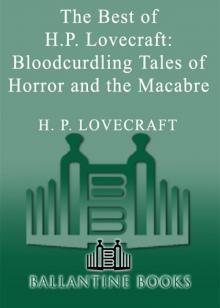 The Best of H.P. Lovecraft
The Best of H.P. Lovecraft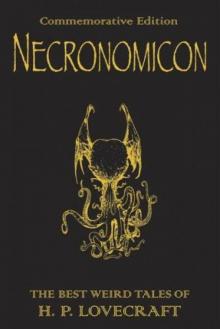 The Definitive H.P. Lovecraft: 67 Tales Of Horror In One Volume
The Definitive H.P. Lovecraft: 67 Tales Of Horror In One Volume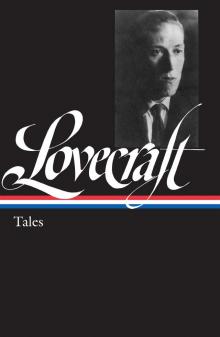 The Complete Works of H.P. Lovecraft
The Complete Works of H.P. Lovecraft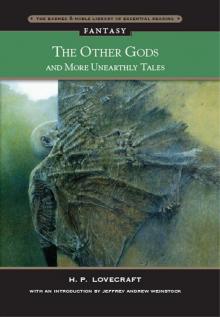 Other Gods and More Unearthly Tales
Other Gods and More Unearthly Tales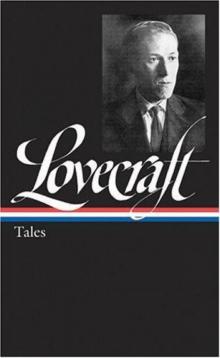 Lovecraft's Fiction Volume I, 1905-1925
Lovecraft's Fiction Volume I, 1905-1925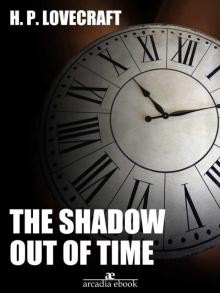 The Shadow Out of Time
The Shadow Out of Time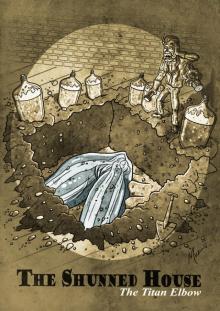 The Shunned House
The Shunned House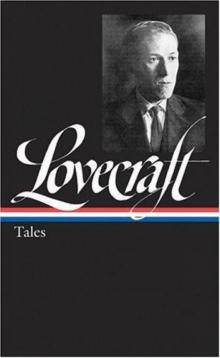 Lovecraft's Fiction Volume II, 1926-1928
Lovecraft's Fiction Volume II, 1926-1928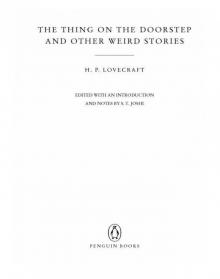 The Thing on the Doorstep and Other Weird Stories
The Thing on the Doorstep and Other Weird Stories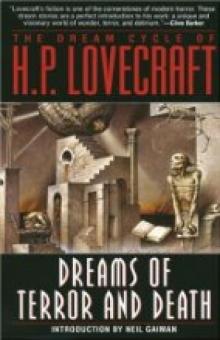 Dream Cycle of H. P. Lovecraft: Dreams of Terror and Death
Dream Cycle of H. P. Lovecraft: Dreams of Terror and Death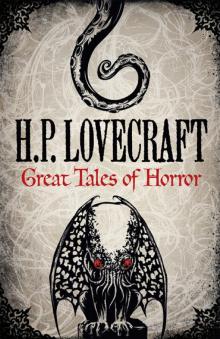 Great Tales of Horror
Great Tales of Horror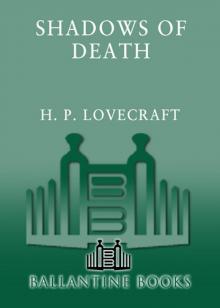 Shadows of Death
Shadows of Death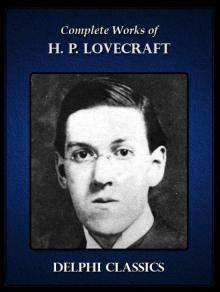 Delphi Complete Works of H. P. Lovecraft (Illustrated)
Delphi Complete Works of H. P. Lovecraft (Illustrated)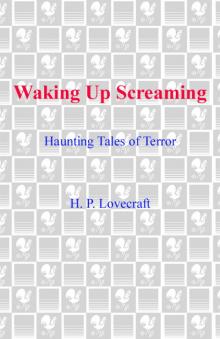 Waking Up Screaming: Haunting Tales of Terror
Waking Up Screaming: Haunting Tales of Terror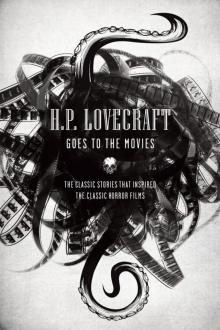 H.P. Lovecraft Goes to the Movies
H.P. Lovecraft Goes to the Movies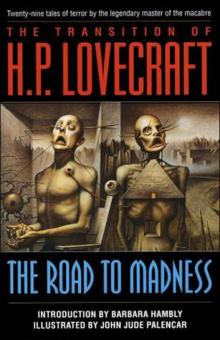 The Road to Madness
The Road to Madness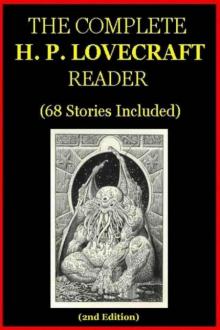 The Complete H.P. Lovecraft Reader (68 Stories)
The Complete H.P. Lovecraft Reader (68 Stories)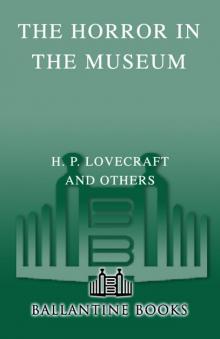 The Horror in the Museum
The Horror in the Museum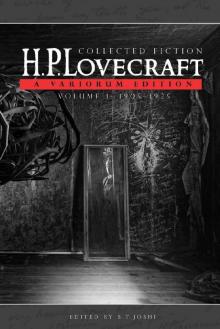 Collected Fiction Volume 1 (1905-1925): A Variorum Edition
Collected Fiction Volume 1 (1905-1925): A Variorum Edition Lovecrafts_Fiction, vol.I_1905-1925
Lovecrafts_Fiction, vol.I_1905-1925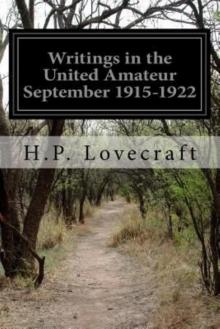 Writings in the United Amateur, 1915-1922
Writings in the United Amateur, 1915-1922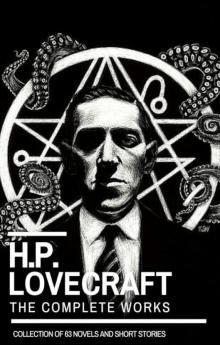 H.P. Lovecraft: The Complete Works
H.P. Lovecraft: The Complete Works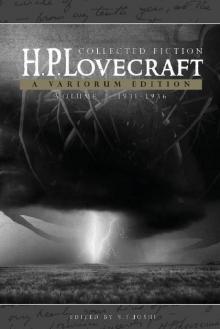 Collected Fiction Volume 3 (1931-1936): A Variorum Edition
Collected Fiction Volume 3 (1931-1936): A Variorum Edition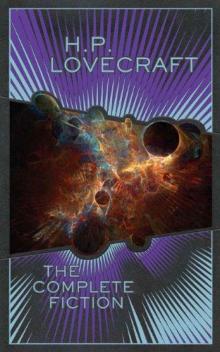 H.P. Lovecraft: The Complete Fiction
H.P. Lovecraft: The Complete Fiction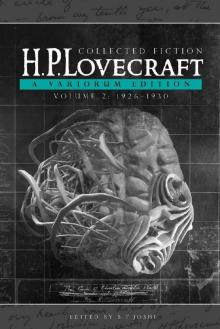 Collected Fiction Volume 2 (1926-1930): A Variorum Edition
Collected Fiction Volume 2 (1926-1930): A Variorum Edition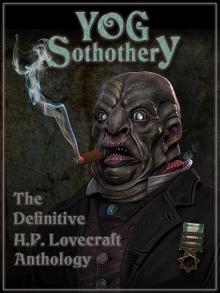 Yog Sothothery - The Definitive H.P. Lovecraft Anthology
Yog Sothothery - The Definitive H.P. Lovecraft Anthology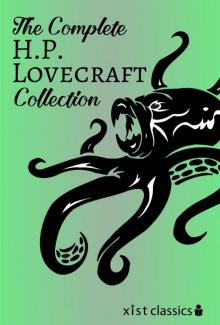 The Complete H.P. Lovecraft Collection (Xist Classics)
The Complete H.P. Lovecraft Collection (Xist Classics)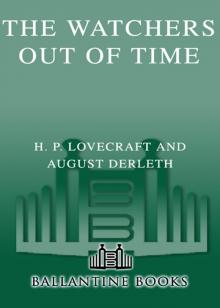 The Watchers Out of Time
The Watchers Out of Time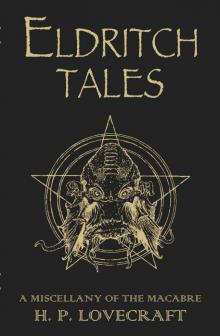 Eldritch Tales
Eldritch Tales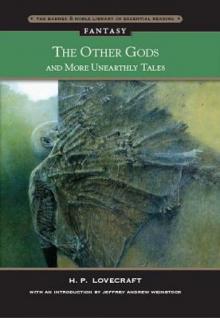 The Other Gods And More Unearthly Tales
The Other Gods And More Unearthly Tales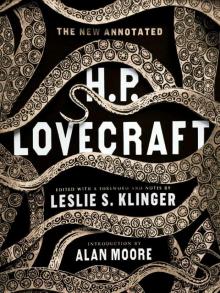 The New Annotated H. P. Lovecraft
The New Annotated H. P. Lovecraft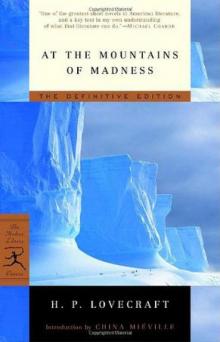 At the mountains of madness
At the mountains of madness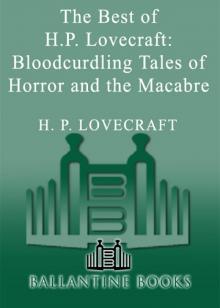 Bloodcurdling Tales of Horror and the Macabre
Bloodcurdling Tales of Horror and the Macabre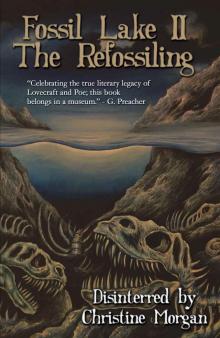 Fossil Lake II: The Refossiling
Fossil Lake II: The Refossiling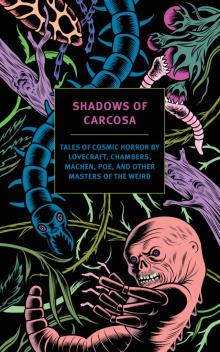 Shadows of Carcosa: Tales of Cosmic Horror by Lovecraft, Chambers, Machen, Poe, and Other Masters of the Weird
Shadows of Carcosa: Tales of Cosmic Horror by Lovecraft, Chambers, Machen, Poe, and Other Masters of the Weird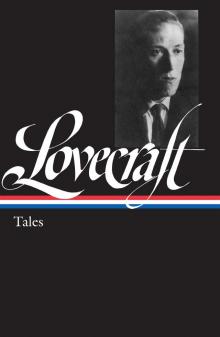 H. P. Lovecraft
H. P. Lovecraft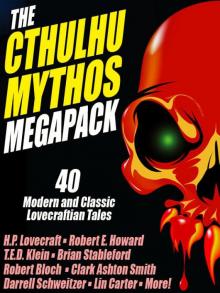 The Cthulhu Mythos Megapack
The Cthulhu Mythos Megapack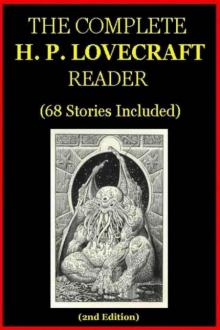 The Complete H. P. Lovecraft Reader (2nd Edition)
The Complete H. P. Lovecraft Reader (2nd Edition)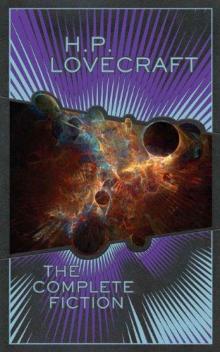 The Complete Fiction
The Complete Fiction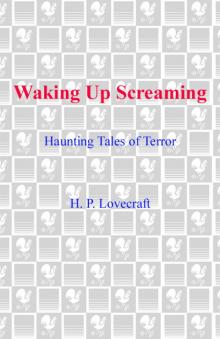 Waking Up Screaming
Waking Up Screaming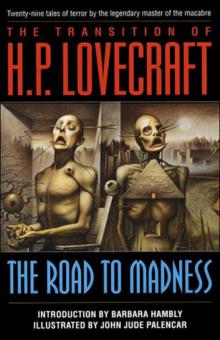 Transition of H. P. Lovecraft
Transition of H. P. Lovecraft![[1935] The Shadow Out of Time Read online](http://i1.bookreadfree.com/i2/04/12/1935_the_shadow_out_of_time_preview.jpg) [1935] The Shadow Out of Time
[1935] The Shadow Out of Time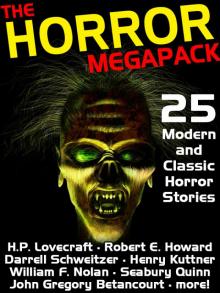 The Horror Megapack
The Horror Megapack